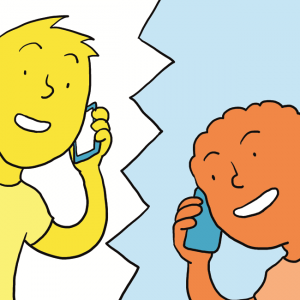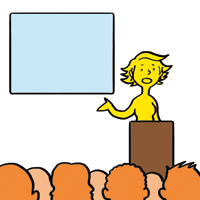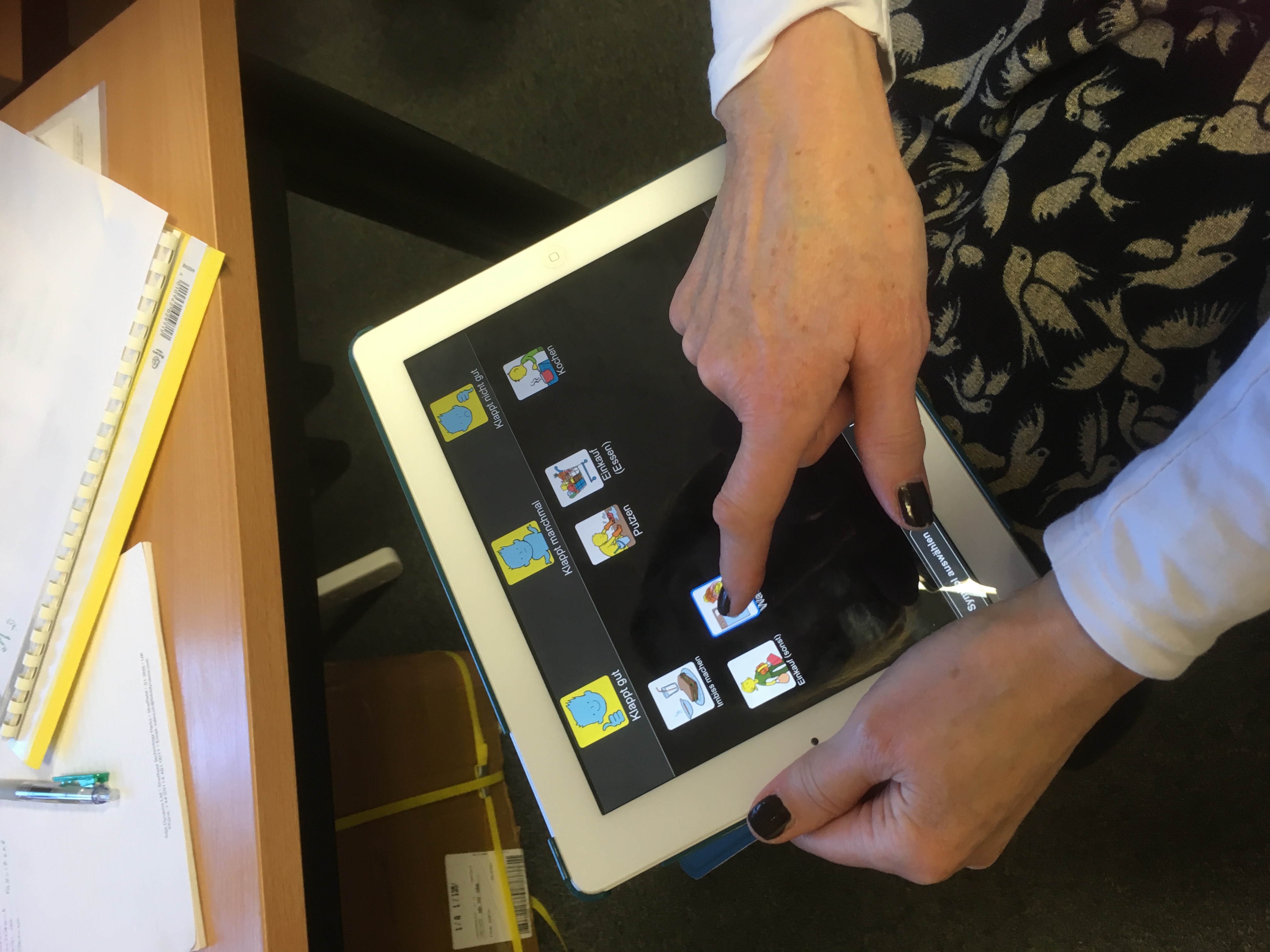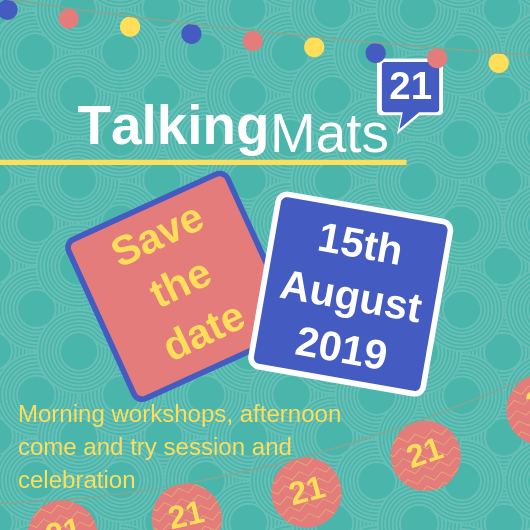The role of Talking Mats in supporting people to make decisions in a capacity context.
Context
At the heart of the different capacity legislation that covers England, Wales, Ireland and Scotland is a requirement to ensure that all practicable steps are taken to support the communication of an individual. Talking Mats is well suited to do this as, it supports people to understand, process and weigh up information and then helps them express their views.
Talking Mats has a research base that provides evidence that using this visual framework improves the quality and quantity of information people can give. This has been shown for people with learning disability, dementia and aphasia.
Capacity; enabling supported decision-making.
The Resource.
This resource has been developed with several teams working in different parts of UK. Capacity is decision specific and must be tailored to fit the requirements of the decision. In developing this resource we have focused on the most common decisions people face; what you do in your free time, where you live, your safety, and your support plan. This resource will not cover all capacity decisions but will be a helpful starting point to support you and your clients.
Why use Talking Mats to support decision making ?

- Decisions are broken down into manageable chunks that reduce cognitive load
- The use of visuals reduces the pressure on spoken language and assists the expression of views.
- It allows people time to reflect on their decisions and change their min
- It demonstrates areas that require more information and knowledge to help make a decision
The Advanced Online Course
This course has been jointly developed by practitioners from social work, occupational therapy and speech and language therapy. Course attendees will;

- Think about and extend their practice within the provisions of the Capacity Act relevant to them
- Think about how decisions are made and what affects the way they are made
- Learn how to extend the resource to cover specific decisions that are not covered
- Explore and reflect on their own use of Talking Mats in this context
- Share their experience and learn from others
Learning will be through short talks, interactive activities, case examples and small group discussion. There will be a mid- session screen break.
To join this Advanced Online Course you need to;
- Have completed the Talking Mats Foundation Training
- Attend with a system that allows you to join in the Teams chat during the session and go into small breakout rooms
- Book onto our Advanced Course via the website shop before the 7th of April
The cost is £95 and this covers the resource and the online session. Places are limited to make sure to book on soon. Resources will be posted out the week before training. Bookings close on the 7th of April.
Not yet Foundation Trained?
Our final resource in our January Sale, the Social Care Resource, in its original form was one of our first. It will be reduced by 30% for the whole of January 2025!
“ it’s an amazing thing; that something so simple could be so useful to people”
James, Talking Mats user

This resource can help build an understanding of who someone is and what is important to them.
It has 3 topics:
You – how is your general health, emotional well being, appetite going at the moment?
Activities – what interests do you have?
Where you live – what works well in your home / where you live and what doesn’t?
Margo MacKay, now our Managing Director, tells a story of her early days using the Social Care Resource in a care home for people with dementia:
When I went back to the Care Home where I was piloting our new Social Care symbols the staff told me this story about Ann. Apparently she usually is very quiet and never joins in with activities or with other residents. However when we used Talking Mats with the Activities symbols, she told me that she really likes singing and had started singing to me. Later that day, one of the care staff had suggested that she sing again and Ann started a song with him. Gradually other residents joined in and they had a lovely sing-song with Ann leading it!
Joan Murphy, Founder of Talking Mats, recently published a report; Reducing the Burden of Dementia by Using the Talking Mats Framework to Help People with Dementia and their Carers Communicate More Effectively. 1 One study described in the report looked at the use of Talking Mats to support people with dementia and their carers to make decisions together. Here are some quotes from people with dementia in the study:
I found it (Talking Mats) a big help, sometimes I get the words muddled and can’t get out what I am trying to say.
The mat shows that I am able to do much more than I thought. I didn’t realise how much she is doing in the house.

The Social Care resource is available to anyone already trained in Talking Mats and between the 1st and 31st of January it will be reduced by 30%.
If becoming trained in Talking Mats is something you’d like to achieve in 2025 find out more here.
References
- Reducing the Burden of Dementia by Using the Talking Mats Framework to Help People with Dementia and their Carers Communicate More Effectively.European Society of Medicine Medical Research Archives, [S.l.]. Vol 12 No 9.
Available at: https://esmed.org/MRA/mra/article/view/5716
Talking Mats don’t do Pink Friday, Black Friday or Cyber Monday but we can tell you about our January Sale.
Starting on the 1st of January 2025 and running until the 31st of January 2025 we are offering;
- 30% discount on our Health and Well Being Bundle
- 30% discount on our Social Care Resource *
- 50% discount on our Eating and Drinking Resource *
*available if Foundation Trained
These are popular resources and over the next couple of weeks I will signpost you to some of our top blogs that showcase how they can be used.
This week:
Health and Well Being Resource Bundle

This comprehensive resource can support conversations around general health, a person’s environment, ability to look after themselves and their communication across different areas. Find out more about it’s development and use.
Read about the development and background to the resource and its use with Duncan who had had a stroke.
Kate was a woman with severe communication difficulties following a stroke. This blog describes how using the 4 communication topics Kate and her therapist were able to identify specific challenges that could be worked on to help her overcome her difficulties.
The Health and Well Being Resource complete with bag and mat will be reduced by 30% from the 1st of January and will be available to buy in the website shop from that date.
Our first Talking Mats advanced online module has launched. We are pleased we had developed our online foundation training well before lockdown. There has been such great feedback from people who have completed our online foundation course and they have been asking for more. They like the bite size chunks, being able to pace their own learning and the reflective practice approach. Now we are adding to our online course with an advanced Talking Mats module focusing on Talking Mats use in safeguarding. This course is structured around the Talking Mats Keeping Safe resource and how to use it.
The Keeping Safe Talking Mats resource was developed to check in with people and find out how their lives are going. It uses a holistic framework to do this and the conversation it supports is structured around three topics: 1) well-being; 2) relationships; 3) thoughts and feelings. The resource was trialled and tested in projects involving over 700 practitioners. Originally, it was designed for people with learning disabilities but feedback has been that it has been helpful with a wide range of people including, those with stroke, head injury, dementia and mental health issues.
The advanced online module involves 2 to 3 hours of learning that you do at your own time and pace. It involves short talks, reading, videos and reflective practice activities. You will develop confidence in using the resource as well as an understanding of relevant issues, such as diagnostic overshadowing, developing the capacity of individuals to raise concerns, the impact of trauma. You will be encouraged to reflect on how you can apply the Talking Mats Keeping Safe resource to your own area of practice
To apply for the course, you must have completed your Foundation Talking Mats training. If you haven’t completed this training book now. Access to this advanced course will begin on the first of every month and you will have 6 weeks to complete it.
Book your place now. The cost is £95 for the course with the Keeping Safe resource and £63 if you already have your Keeping Safe resource and just want to do the training.
Talking Mats is now used in many countries all over the world. As part of our #TMis21 blog series, we wanted to share this great example of Talking Mats being used in Germany.
In March 2019 Prof. Dr. Norina Lauer (OTH Regensburg) and Elena Maxheimer held a lecture and a workshop about Talking Mats at the “aphasia days” in Wuerzburg, Germany. Many thanks to Norina and Elena for sharing information about the “aphasia days” for this blog post.
The “aphasia days” are a large congress – unique in Europe – for people with aphasia, family members and speech and language therapists (SLT). Every year around 600 people from Germany, Austria, Switzerland and Hungary are coming to this event. There are talks, workshops and podium discussions held by participants with aphasia, family members or SLTs. In front of approx. 150 listeners Norina and Elena gave a lecture about Talking Mats and the results of Elena’s bachelor thesis, in which she worked with people with aphasia, who learned to use Talking Mats.
In a three-hour workshop at the “aphasia-days” Norina and Elena taught nine people with moderate to severe aphasia how to use Talking Mats. All persons brought their own tablets and logged into their own account. They where shown how to choose a topic and a top scale and practiced in teams of two. All of them conducted several sessions with different topics and switched partners a couple of times. They had a lot of fun talking about things that matter to them and learn more about their peers. At the end of the workshop they were able to use Talking Mats themselves and are going to use it with their relatives and friends at home. As the workshop was very well received by the participants, it is likely to be repeated at the next “aphasia days” 2020.
If you would like to find out more information about Talking Mats in Germany, and the Digital Talking Mats app which is now available in German, check out https://www.talkingmats.com/talking-mats-in-germany/ and https://www.talkingmats.com/german-digital-talking-mats-with-people-with-aphasia/
Our Talking Mats is 21 Event is in Stirling on Thursday 15th August 2019. Thanks to funding from NHS Forth Valley endowment committee the event is free but you do need to book your space https://www.eventbrite.co.uk/e/talking-mats-is-21-tickets-62362171935
You can come to the morning only, afternoon only or come for the whole day.
If you can’t come to our event watch out for out blogs and social media celebrating the reach of Talking Mats for 21 days before the 15th of August. Please join in with your contributions using the hashtag #TMis21. For 21 days after our event we will be having a special Birthday offer! Watch this space, more to follow …….
We are all looking forward to celebrating Talking Mats is 21 on the 15th August
The morning is aimed at people who are experienced Talking Mats practitioners and will extend thinking and Talking Mats practice. There are an interesting range of parallel sessions to choose from. Each participant will get to choose three topics to attend.
- Talking Mats as a Thinking Tool
- Embedding Talking Mats in Schools
- Talking Mats in Forensic Settings
- Talking Mats in End of Life Care
- My experience of using Talking Mats as a parent
- Talking Mats and Positive behaviour Support
- Talking Mats and Supported Decision- Making
- Empowering people with Learning Disabilities to be Talking Mats Listeners and Trainers
- Talking Mats and Children’s Mental Health
The afternoon is more informal and there will be an opportunity to engage with some of our partners – see how they use Talking Mats and try things out . There will be posters on the use of Talking Mats in lots of different places and for a wide range of applications.
Plus there will be lunch, cake and a few bubbles !
Thanks to funding from NHS Forth Valley endowment committee the event is free but you do need to book your space https://www.eventbrite.co.uk/e/talking-mats-is-21-tickets-62362171935
You can come to the morning only, afternoon only or come for the whole day.
If you can’t come to our event watch out for out blogs and social media celebrating the reach of Talking Mats for 21 days before the 15th of August .Please join in with your contributions using the hashtag #TMis21. For 21 days after our event we will be having a special Birthday offer! Watch this space, more to follow …….
In this latest blog, our Talking Mats OT Associate, Rachel Woolcomb tells us how Talking Mats can support delivery of Personalised Care:
“Person centred practice”, and “partnership approach” are common phrases heard in health and social care settings but what does this really mean in practice?
How good are we at ensuring our service users are truly heard, and given opportunities to talk about what is important to them?
Recently NHS England set out their ambitions for the delivery of personalised care. This is a commitment to enabling people to have the same choice and control over their mental and physical health that they have come to expect in every other part of their life.
This however requires a shift in culture.
One of the cornerstones of personalised care is shared decision making. This is a collaborative process in which people are supported to understand the options available to them including the various risks, benefits and consequences. A shared decision will have acknowledged personal preferences, circumstances, values and beliefs. This ensures that when a choice is made it is fully informed.
There is substantial literature which demonstrates the usefulness of goal setting as part of the communication and decision making process.
A well written person-centred goal will describe the anticipated achievement of a specific activity. It will be meaningful and help create a common vision within the rehabilitation process.
Talking Mats is an ideal tool to help facilitate these processes. They enable better conversations and provide an interactive thinking space. They have also been demonstrated to be a useful tool in enabling people to think about their rehabilitation goals.
Read more about this in the TMOT Resource 2: How Talking Mats can help facilitate shared decision making and goal setting: Goal setting TMOT 2
If you would like to find out more about the different Talking Mats training options we offer, take a look here: https://www.talkingmats.com/training/
We are delighted to introduce Rachel Woolcomb our first Talking Mats OT Associate. She is joining the Talking Mats Team and will be working to develop awareness and use of Talking Mats by Occupational Therapists. I will let Rachel introduce herself:
I am delighted that Talking Mats have asked me to join their team for one day a week. I am passionate about occupational therapy and about Talking Mats and to have the opportunity to bring these two loves together and seeing what develops is very exciting.
I live in South Gloucestershire and have had a varied career since I qualified as an Occupational Therapist in 1992. I was introduced to Talking Mats in 2008 and have never looked back, using them with my clients ever since.
In 2017, having spent over 25 years working in the NHS, I made the decision to move into independent practice. I work predominately with teenagers and adults who live with long term neurological conditions or who have experienced catastrophic injuries following trauma. I am very aware of the psychological impact of sudden disability and the need for people to be able to express who they are and what is important to them, even in difficult circumstances.
I now use Talking Mats with most of my clients. It doesn’t matter if they are old or young, can speak or have communication needs, they all benefit from the opportunity to stop and think and have someone really listen to them.
In the last few weeks a man who has had a stroke and has limited expressive speech has used a Talking Mat to talk about what leisure activities he used to enjoy. He then used a second mat to explain what he can and cannot achieve now. This helped us together, set goals for occupational therapy. I am also working with a teenager who has had a traumatic brain injury and now struggles with her education. She uses Talking Mats with me regularly, to think about her coping skills at school. Looking back at her previous mats is helping her to recognise progress. I have so many more examples and will be sharing them with you soon!
I really want to inspire OT’s, helping them to consider how they enable their clients to think, communicate their choices and make decisions. A Talking Mat is a great for this. It is also creative and interactive something that in my experience OT’s like! I will also be looking at important issues within the field of occupational therapy that are currently driving practice, such as personalised care, goal setting and shared decision making. I believe it is vitally important that we collaborate with our clients as together we can achieve so much more. Talking Mats is an effective tool in enabling this, so watch this space, and please do get in touch if you want to know more or have stories to share.
It is great to have Rachel working with us to build on some of the excellent work being done already in the Occupational Therapy Sector. Our Director, Lois Cameron shares why we are so excited to welcome Rachel to our Team:
‘I am really pleased that Rachel is joining us . I think the Talking Mats approach sits well with the values and approach of Occupational therapy, In my experience OTs are naturally holistic in their approach. I remember at a training course in London an OT said for her Talking Mats was the missing link in her toolkit. The training and experience of OTs allow them to see things through a different lens and that will be really helpful to us’
For more information about how OT and Talking Mats are a winning combination, take a look at Rachel’s recent blog – https://www.talkingmats.com/talking-mats-and-ot-a-winning-combination/
Feeling inspired and want to know more about the training courses we offer? See www.talkingmats.com/training/ for details.
Grateful thanks to Prof. Dr. Norina Lauer, OTH Regensburg – University of Applied Sciences, Germany for this blog.
At the conference of the German Society for Aphasia Research and Treatment (GAB) from the 1st to the 3rd of November Franziska Rau presented a poster – Let pictures talk – about her bachelor thesis on Talking Mats.
Speech and language therapists from German-speaking countries meet at this conference to present their latest research findings. This year’s theme was ” Aphasia Therapy Digital”.
The presented bachelor thesis about Talking Mats was performed at the HAN University of Applied Sciences, Netherlands, and was written by Franziska Rau together with Karoline Bitter and Lara Stobrawe. The students asked 29 people with aphasia and 63 people without aphasia for how representative they rated the images and terms used in the Communication section of the Digital Talking Mats Health & Well-being resource. While the healthy persons judged many items as not clear enough, the people with aphasia estimated significantly more pictures and names as appropriate. For this purpose, various reasons have been discussed, such as the possibility that the persons with aphasia directly perceived the pictures and terms as aids, while healthy persons judged more critically on the basis of the task. But also problems of concentration or comprehension in people with aphasia would be causally conceivable. This should be examined in further studies.
The poster was presented as part of a poster session and was well received by the audience. Thanks to Franziska, Karoline and Lara for their great study and to Holger Grötzbach, Janine Coopmans and Xaver Koch who supported the students.
We are always happy to receive projects and posters from anyone studying how Talking Mats can be used
We are very grateful to Elena Maxheimer, a Speech and Language Therapy student from Germany, for sending us this blog of a summary of her thesis which examined the use of the German Digital Talking Mats with people with aphasia.
In May 2018 I did my bachelor thesis on the German version of the Talking Mats app. Under the consultation of Prof. Dr. Norina Lauer, I delivered two workshops for eight people with aphasia. In these workshops the participants practiced doing Talking Mats and afterwards they evaluated the app by filling out a short questionnaire and taking part in a focus group in which they discussed the app’s content and practical use.
The participants generally rated the app as useful for people with aphasia and in particular, the topics, pictures and terms were rated as suitable for people with aphasia. The two most chosen topics were Health and Communication. Some aspects were difficult for people with aphasia. Some of the group had problems in choosing a suitable scale, writing on an empty card or writing down comments.
Suggestions for modification were
– Showing two sessions of Talking Mats parallel to have a better comparison
– Using the app on the smartphone – however the screen on a smartphone is too small to be manageable
– Saving the login data, so you don’t have to login every time you use the app
– One older participant suggested additional topics about specific diseases such as diabetes
– Another younger participant wanted more about sex, feelings, sympathy and love.
For other information about Talking Mats in Germany click here
Also Joan Murphy and Norina Lauer will be running a Talking Mats workshop in Cologne on May 5th and 6th 2019
 Online training login
Online training login 








